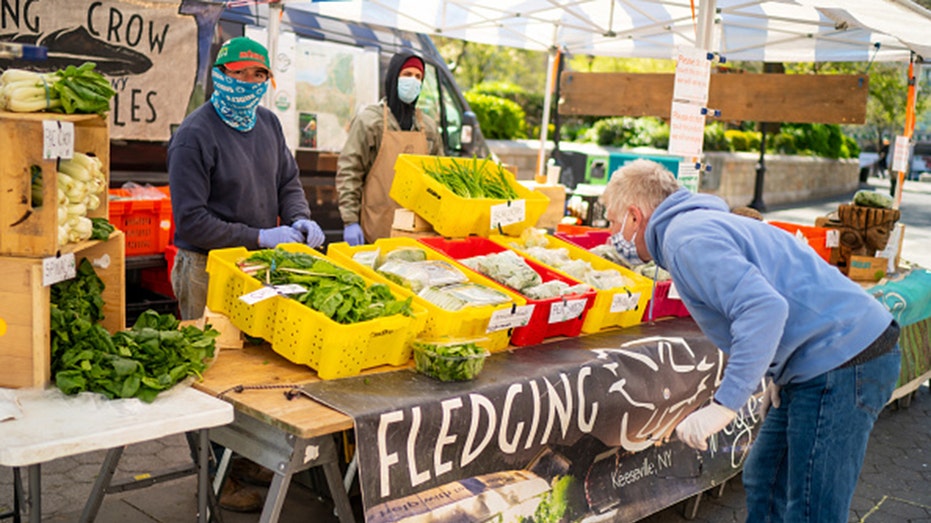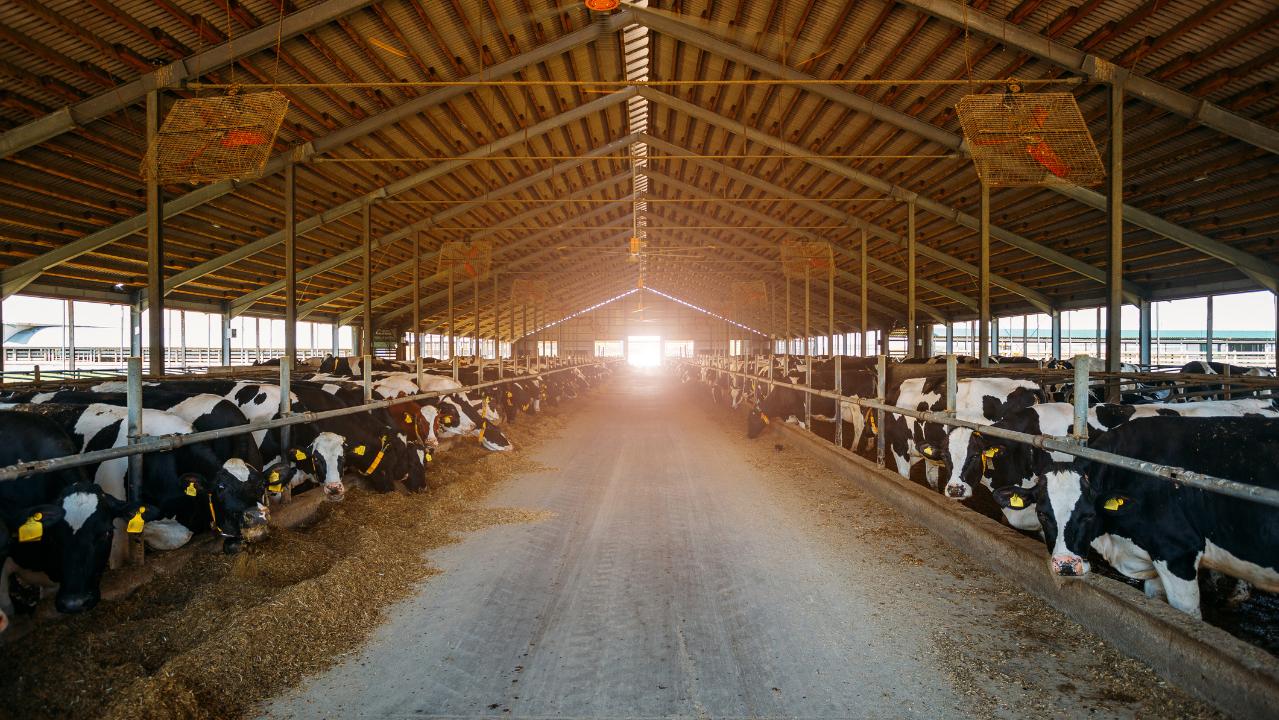Coronavirus forces farmers to destroy their crops
American farmers are dumping milk, throwing out eggs and plowing under healthy crops
Farmer Carl Grooms has been planning harvests for decades but now he is getting ready to plow under his nearly ripe peppers and beans because there is no market to buy them -- and he doesn't want to watch them rot.
As the coronavirus pandemic disrupts supply chains, American farmers are dumping milk, throwing out eggs and plowing under healthy crops. Produce suppliers are especially vulnerable to surpluses because fruits and vegetables are perishable and can't be stored.

With no market to buy them as the coronavirus pandemic disrupts supply chains, American Farmers feel forced to destroy under healthy crops. (Photo by Gotham/Getty Images)
"We're not just going to let [the food] die, we'll go in and destroy it, " said Mr. Grooms, the 74-year-old owner of Fancy Farms in Plant City, Fla. "It's a mental thing, you don't want to see your crop rot and suffer."
Mr. Grooms said that a few weeks ago, berry orders evaporated nearly overnight and the strawberry harvest collapsed, with much of it remaining in the fields rather than being picked and shipped. It left a stench of rotting berries hanging over his farm.
AMERICANS GROW THEIR OWN FOOD DURING CORONAVIRUS PANDEMIC
Right now, he has the labor to pick ripe squash, but he has to sell it for a fraction of typical prices, just enough to cover his workers' pay and the cost of boxes to ship the vegetables, he said.
Lettuce producer Mark Borba, in Huron, Calif., said he has had to plow under 230 of 680 acres of recently harvested lettuce since the pandemic swept the country a month ago. He said demand fell off so sharply from restaurants, schools and other large customers that his crews had to unpack 9,000 cartons of lettuce from a warehouse where they had awaited shipment and dump them back in the fields to be plowed under.
"The demand (from the large customers) just went to zero," said Mr. Borba, who manages 10,000 acres under his Borba Farms. "And not only did we lose restaurants and schools, but people were going to the grocery store buying nonperishable stuff to put in the pantry. They were not buying leafy greens."
On Friday, President Trump announced a $19 billion relief program for the agriculture sector.
The effort, called the Coronavirus Food Assistance Program, will include $16 billion in direct payments to farmers and ranchers and $3 billion in mass purchases of dairy, meat and produce that will be distributed through food banks.
This follows steps the administration is taking to reduce costs and restrictions on farmers looking to hire migrant workers during the coronavirus pandemic, including lowering their minimum wages.
Mr. Grooms of Fancy Farms said he is optimistic Mr. Trump will ensure the H-2A migrant worker visa program, which farmers rely on, can continue.
"I think he'll hold steadfast to get us labor in here and do the work that Americans don't want to do," he said.
Prices on strawberries have dropped, indicating most California growers, at least, are getting the crops out of the fields, said Kevin Schooley, the executive director of the North American Strawberry Growers Association. While demand is still lagging because restaurants and schools aren't buying products, he hopes demand can rebound soon as people get used to being at home and want fresh food.
Because of the long lead times, Mr. Grooms and other commercial berry farmers have already placed orders with nurseries for the delicate plants they will need for harvests months down the road. He said that while he is already on the hook for thousands of berry plants if demand is still cratered in coming months, he might just pay for them and tell the nursery to not even bother shipping them. That's not likely, he hopes.
John Harris, president of Harris Farms in Coalinga, Calif., said his business has seen a drop in demand for lettuce, too, but that he is going to continue planting in hopes consumer buying habits rebound.
Mr. Grooms knows strawberries aren't needed to sustain life, but everybody needs more than the basics.
"You can't just eat beef and taters everyday," he said.
GET FOX BUSINESS ON THE GO BY CLICKING HERE




















